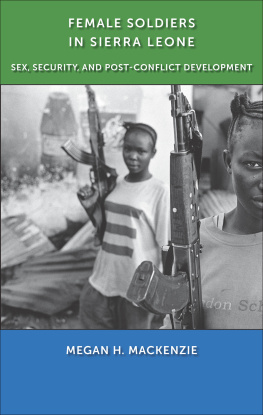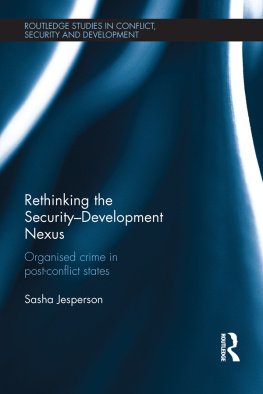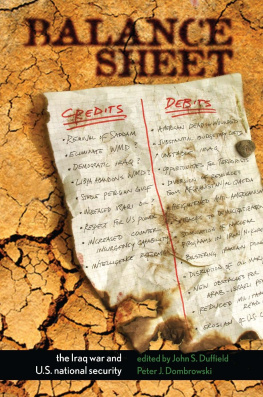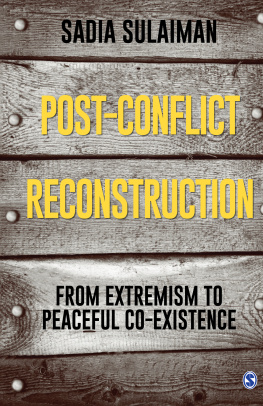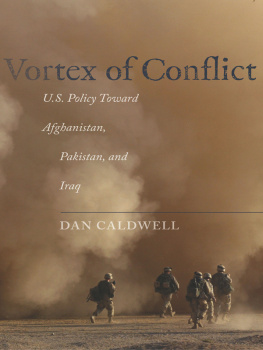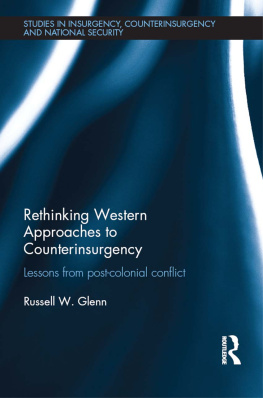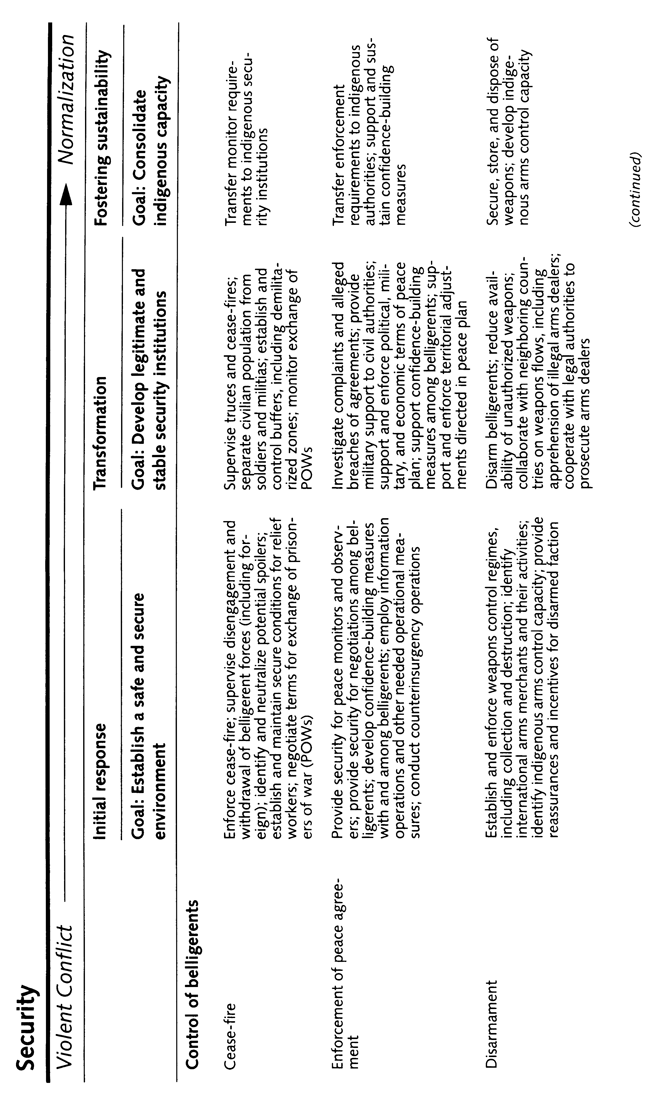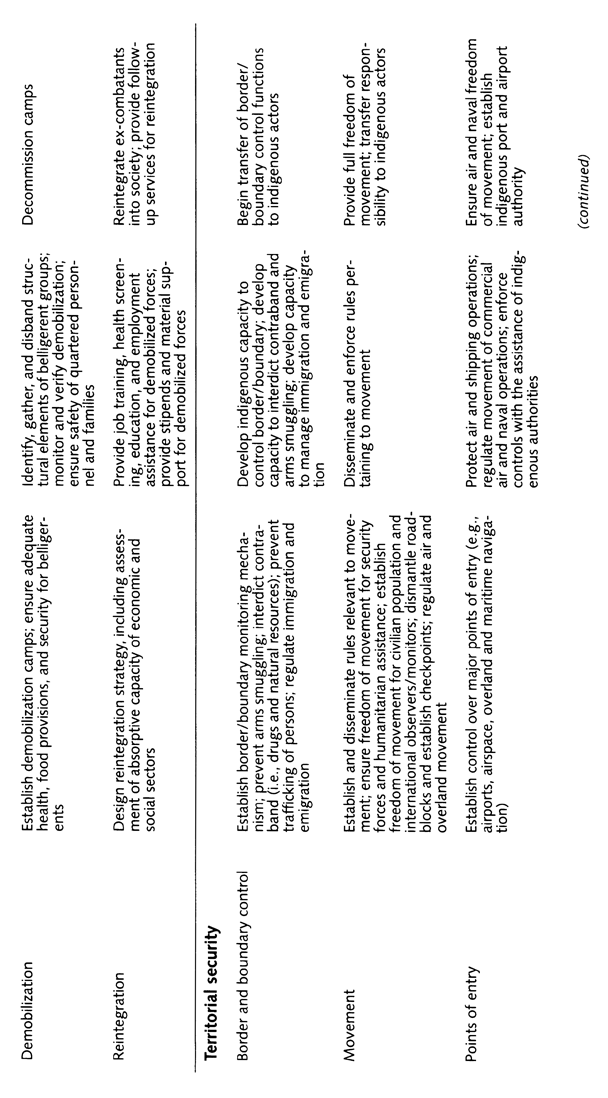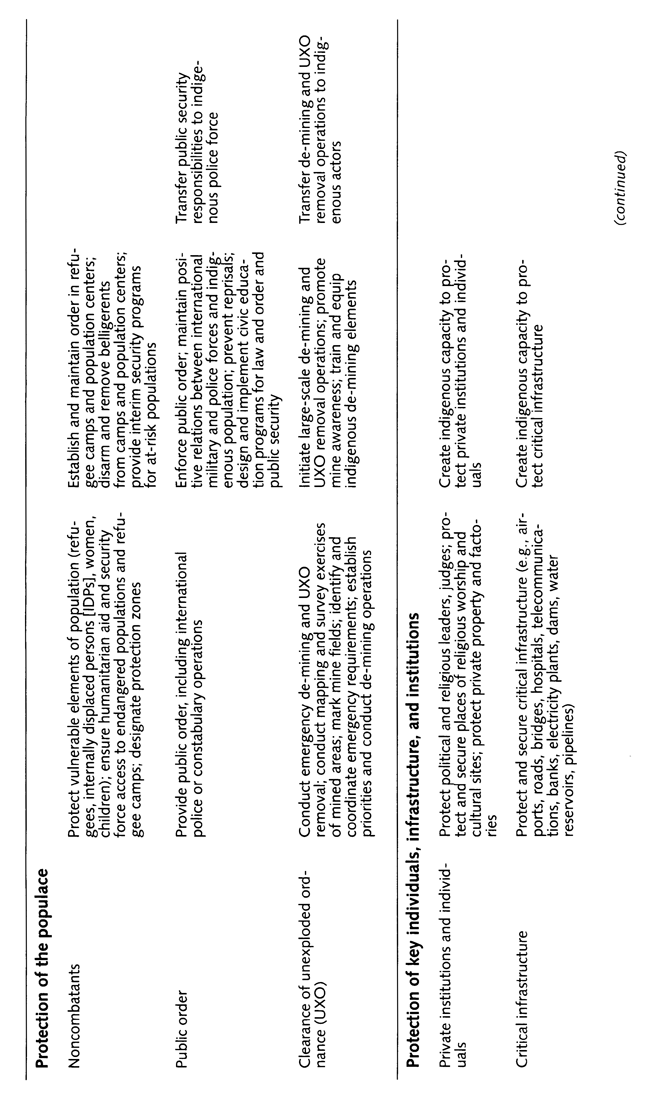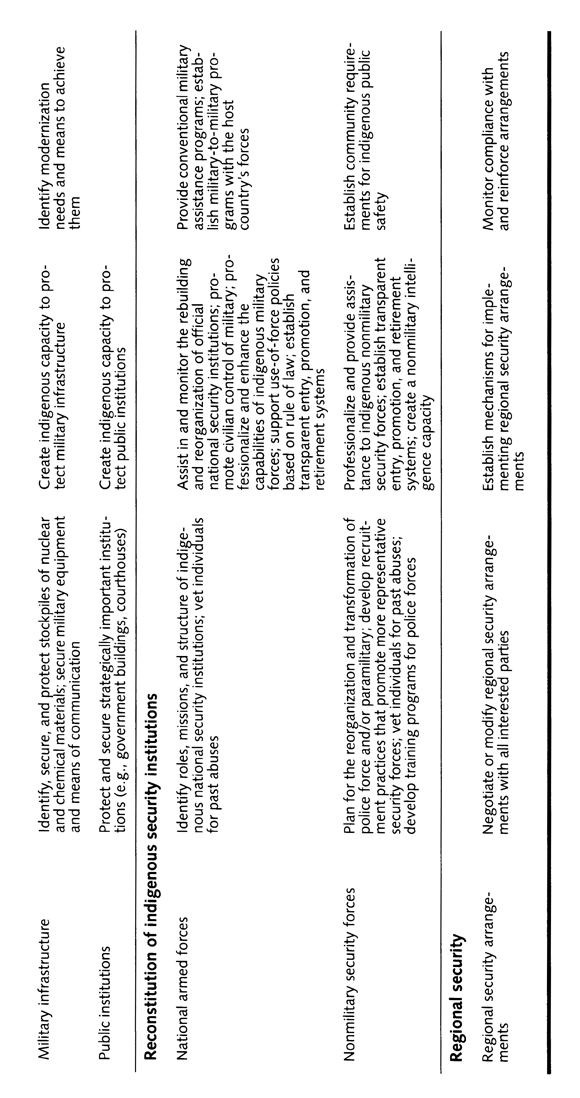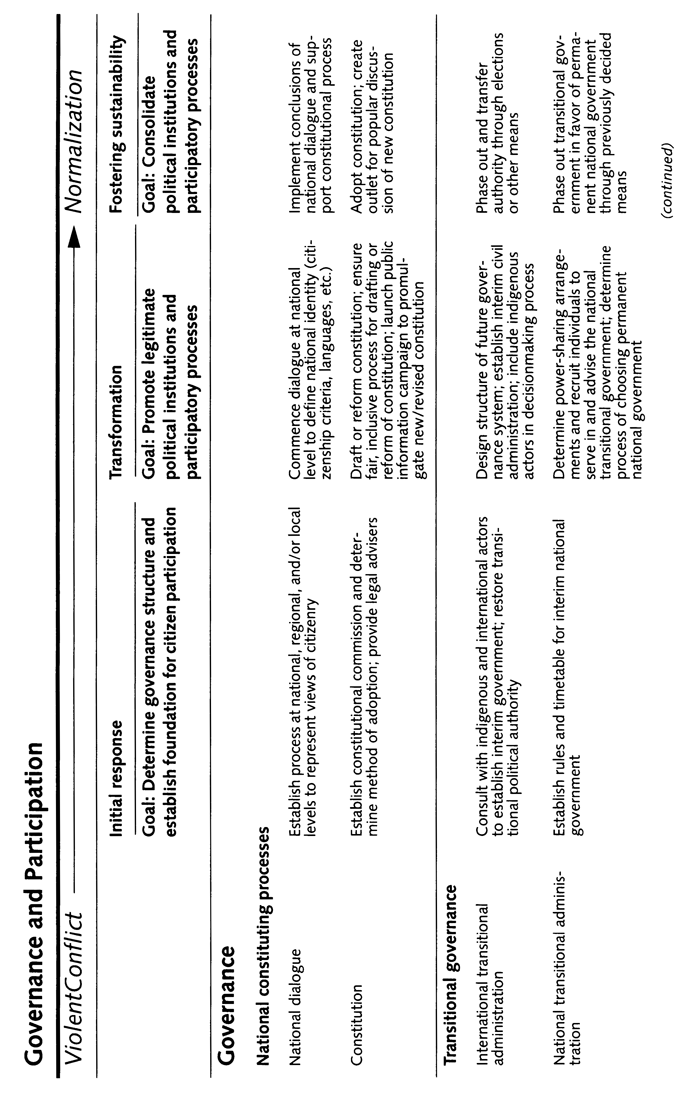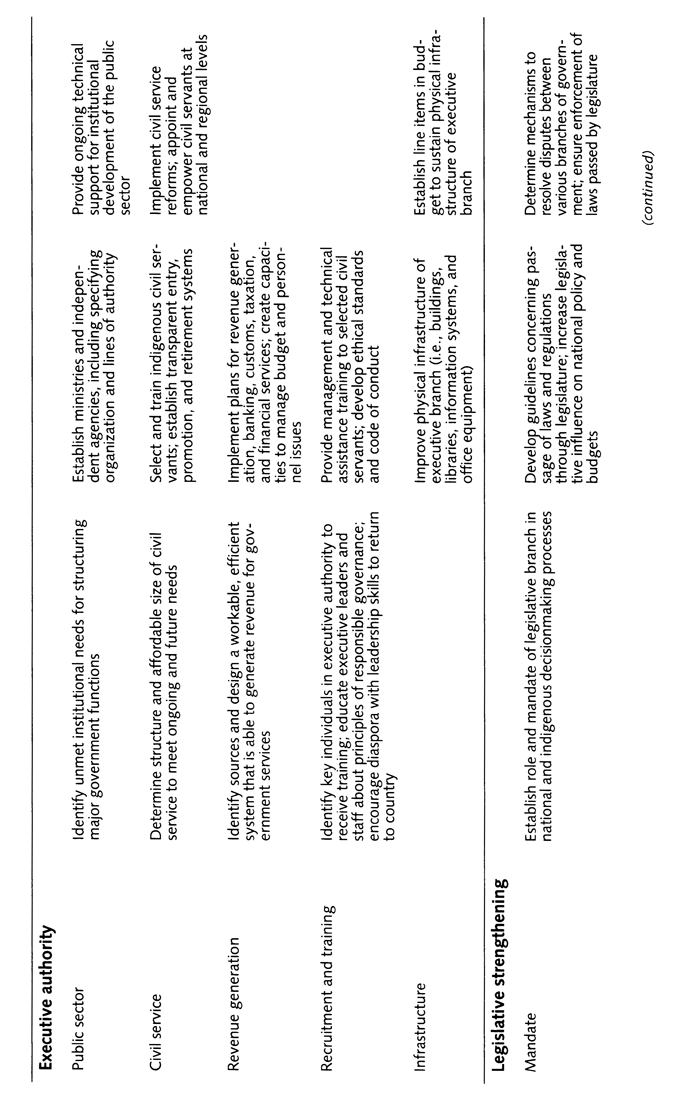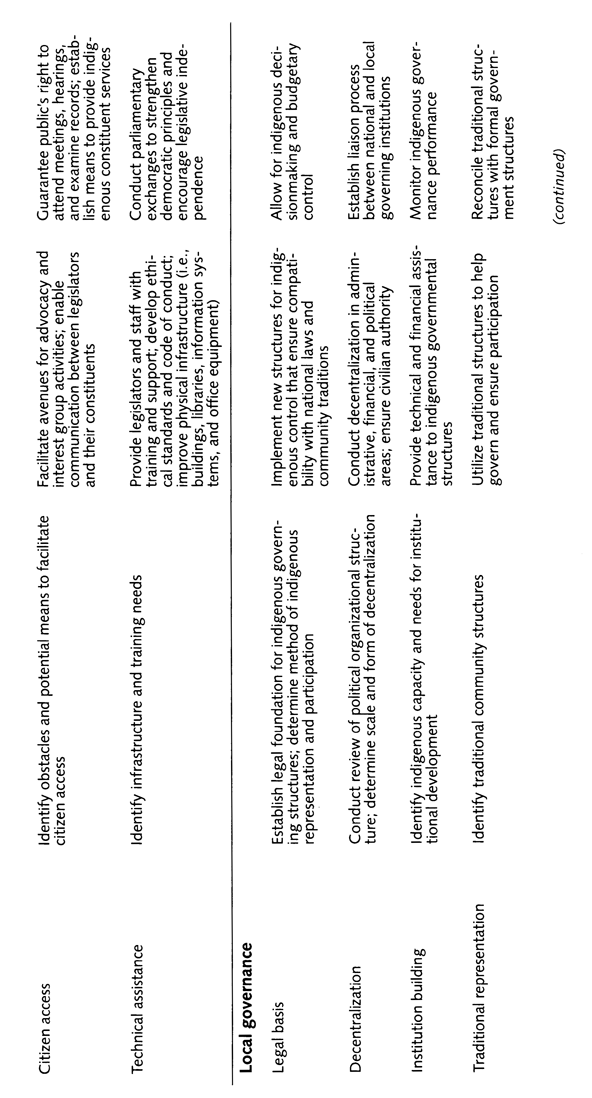ABOUT THE AUTHORS
Bathsheba N. Crocker is a fellow and codirector of the Post-Conflict Reconstruction Project at the Center for Strategic and International Studies (CSIS), as well as an adjunct professor at the Johns Hopkins School of Advanced International Studies and at George Washington Universitys Elliott School of International Affairs. During 20022003, she was an International Affairs Fellow at the Council on Foreign Relations. Prior to that, she served as an attorney in the Legal Advisers Office at the U.S. Department of State, as deputy U.S. special representative for the Southeast Europe Initiative, and as executive assistant to the deputy national security adviser at the White House.
Scott Feil is a research staff member of the Institute for Defense Analyses in Alexandria, Virginia. Colonel Feils 27year career in the United States Army culminated in the command of an armored brigade and service as chief of the Strategy Division of the Directorate for Strategic Plans and Policy of the Joint Staff. After his retirement, he was executive director of the Association of the United States Armys Program on the Role of American Military Power and codirector of the joint CSIS/AUSA Post-Conflict Reconstruction Project.
Michle Flournoy is senior adviser in the International Security Program at the Center for Strategic and International Studies (CSIS), where she works on a broad range of defense policy and international security issues. She was a codirector of the joint CSIS/AUSA Post-Conflict Reconstruction Project. Previously, she was a Distinguished Research Professor at the Institute for National Strategic Studies at the National Defense University. In government, she served as principal deputy assistant secretary of defense for strategy and threat reduction and as deputy assistant secretary of defense for strategy.
Johanna Mendelson Forman is senior program officer for Peace, Security, and Human Rights at the United Nations Foundation in Washington, D.C. An expert on post-conflict reconstruction and political development, she was a cofounder of USAIDs Office of Transition Initiatives and a social scientist at the World Banks first Post-Conflict Unit. Previously she served as a senior adviser at the Association of the United States Army and a codirector of the joint CSIS/AUSA Post-Conflict Reconstruction Project. An historian and attorney, she has written extensively on civil-military relations in Latin America and on post-conflict and security sector reform. She holds academic appointments at Georgetown University and the American University in Washington, D.C.
Robert C. Orr is the executive director of the Belfer Center for Science and International Affairs at Harvard Universitys John F. Kennedy School of Government. Prior to this appointment, he served as director of the Council on Foreign Relations in Washington, D.C., and as senior fellow and codirector of the joint CSIS/AUSA Post-Conflict Reconstruction Project at the Center for Strategic and International Studies. He has served in government as deputy to the U.S. ambassador to the United Nations and as director for Global and Multilateral Affairs at the National Security Council in the White House.
Michael Pan is a senior policy analyst for national security and international policy at the Center for American Progress in Washington, D.C. Previously he served as the political adviser to the chief prosecutor for the Special Court for Sierra Leone. Prior to joining the tribunal in Freetown, he was an associate and coordinator of the joint CSIS/AUSA Post-Conflict Reconstruction Project at the Center for Strategic and International Studies. Prior to that, he served as the special assistant for the ambassador-at-large for War Crimes Issues at the Department of State.
Milan Vaishnav is a researcher for the Commission on Weak States and U.S. National Security at the Center for Global Development in Washington, D.C. He also serves as special assistant to the centers president. Previously, he served as program coordinator in the Washington, D.C., office of the Council on Foreign Relations. He served as research assistant on the joint CSIS/AUSA Post-Conflict Reconstruction Project at the Center for Strategic and International Studies.
ACKNOWLEDGMENTS
We would like to thank the United Nations Foundation and the Better World Fund and the William and Flora Hewlett Foundation for their ongoing commitment to the Post-Conflict Reconstruction Project.
APPENDIX 1
JOINT CSIS/AUSA POST-CONFLICT RECONSTRUCTION TASK FRAMEWORK
Countries emerge from conflict under differing and unique conditions. Therefore, the priority, precedence, timing, appropriateness, and execution of tasks will vary from case to case. The Post-Conflict Reconstruction Task Framework presents the range of tasks often encountered when rebuilding a country in the wake of violent conflict. It is designed to help indigenous and international practitioners conceptualize, organize, and prioritize policy responses. By laying out the universe of options, the framework is intended to help identify shortfalls and gaps in reconstruction processes and capabilities. It is also geared to assist planning and coordination efforts. The framework is not a political-military plan; nor is it a checklist of mandatory activities for all cases or a strategy for success. Rather, it provides a starting point for considering what needs to be done in most cases. It does not suggest how it should be done or who should do it.
The framework places tasks between the cessation of violent conflict and the return to normalization. For the purposes of this framework, normalization is reached when (1) extraordinary outside intervention is no longer needed; (2) the processes of governance and economic activity largely function on a self-determined and self-sustaining basis; and (3) internal and external relations are conducted according to generally accepted norms of behavior.
The framework is organized into three conceptual phrases, defined as initial response, transformation, and fostering sustainability. These phases occur over a time span that varies according to local conditions and by each individual task. As such, this framework should be read horizontally, as transitions are task-specific. Comparing different tasks vertically is misleading because not all of the tasks that appear in a given phase will occur at the same time.




